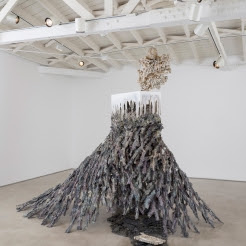US
The hard-line drug policies adopted during the 1980s
in the “war on drugs”, including mandatory minimum sentences for
some drug-related crimes, has led to extremely high levels of
incarceration in the country. The US has more than 2 million people
in its jails – the second highest rate of incarceration per capita
in the world – about half of whom were convicted of drugs-related
crimes.
UK
In the first half of the 20th century, doctors in the
UK were allowed to prescribe drugs including morphine and cocaine to
addicts – during this period there was a relatively low amount of
drug use. In 1964, the UK introduced the first of several laws that
would make it a criminal offense for individuals to possess drugs.
The country now has, by some estimates, the highest level of
dependent drug use in Europe – the number of dependent heroin users
increased (pdf) from about 5,000 across the UK in 1975 to about
281,000 in England alone in 2007.
Australia
In the 1980s, Australia was one of the first
countries to enact the policy of “harm minimisation”, which
involves reducing supply of drugs, education policies that aim to cut
demand, and minimising harm caused by drugs on the user and
community, through initiatives such as needle programs and safe
injecting sites. Despite this, a major international study warned in
2013 that Australia had “one of the world’s most serious drug
problems”, particularly regarding opioid and cannabis use.
Portugal
Portugal changed its drug laws in
2001, making possession for personal use an administrative rather
than a criminal offense – punished by fines and community service
rather than jail time. The policy is widely regarded as successful
with decreased rate of HIV infections among drug users, a drop in
deaths among heroin users, a dramatic increase in addicts seeking
treatment, and no increase in drug use.
Czech Republic
The second most liberal country in
Europe regarding drug legalization. In 2009, the Czech government
began allowing people to possess small quantities of marijuana and
heroin without facing criminal charges. Production and trafficking of
drugs, as well as possession of larger quantities, is illegal.
Cannabis has been legally available for medical purposes since 2013.
Canada
Became the first country to legalize
the use of cannabis by terminally ill patients in 2001. There have
been strong campaigns around the country to legalize cannabis. In
2015, the Vancouver government introduced rules to license and
regulate marijuana stores, to the consternation of federal
government, though the newly elected Liberal prime minister, Justin
Trudeau, ran on a drug platform which promised to “legalize,
regulate and restrict access to marijuana”.
Peru (photo above)
One of the world’s largest producers
of coca leaf, Peru traditionally adopted policies of prohibition and
punishment. However, changes to the criminal code, introduced in
2003, have relaxed this policy, making possession of drugs in small
quantities for immediate use “not punishable”. This applies to
cocaine, marijuana, opium and ecstasy. However, possession of two or
more types of drugs is punishable, as is trafficking drugs.
Indonesia
Drug laws in Indonesia are notoriously strict.
Possession of illicit drugs is punished by jail time and hefty fines
and drug trafficking carries long jail sentences or the death
penalty. The government has recently introduced provisions that allow
people convicted of drug possession to go through rehabilitation
rather than prison, in some cases.
United Arab Emirates
The UAE has one of the world’s longest lists of
prohibited substances. Possession of drugs commonly available in
other countries – such as codeine and some antidepressants – can
lead to criminal charges and a potential jail sentence. The UAE also
enforces the death penalty in cases of drug trafficking. The presence
of illegal drugs detected in blood or urine is considered possession
and can lead to prison time, even in very small, trace amounts.
Iran
Iran has a very mixed drug policy. It mandates harsh
penalties for possession, which can result in public lashing, and for
drug trafficking. Approximately 70% of all executions in the country
are for drug-related crimes. But the country, which has one of the
highest drug addiction rates in the world, has received praise for
progressive policies relating to treating addiction, including
government-supported clean needle programs.


























































